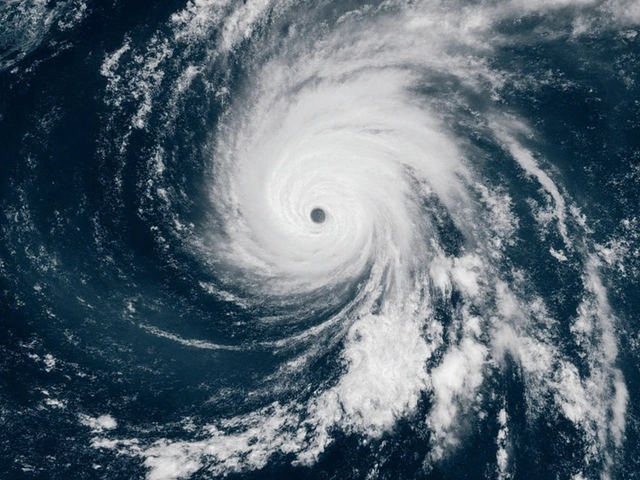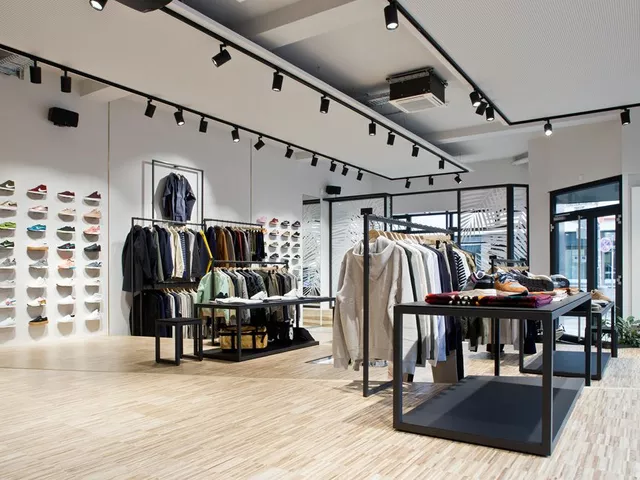
On Wednesday, November 19, 2025, millions around the world will pause to honor the quiet heroes in their lives — fathers who wake before dawn, teachers who stay late, brothers who listen without fixing, and sons learning what it means to be strong without being silent. This year’s International Men's Day Sydney will center on the theme 'Celebrating Men and Boys', not with parades or speeches alone, but with a nine-hour live webcast stretching from 3:00 PM to midnight AEDT. The event, organized by the International Men's Day initiative, isn’t just another Zoom call. It’s a global conversation — raw, real, and rarely heard on mainstream media.
Why November 19? A Day Built on Connection
The choice of date isn’t arbitrary. November 19 was deliberately placed one day before International Children's Day , creating what organizers call “48 hours of celebration for men and children, and the special relationship they share.” It’s a subtle but powerful message: men aren’t just providers or protectors — they’re caregivers, storytellers, and emotional anchors. The idea traces back to 1999, when Dr. Jerome Teelucksingh, a Trinidadian physician and academic, revived a decades-old concept into a structured global observance. He didn’t want to compete with International Women's Day . He wanted to complete the picture.The Webcast: A Global Microphone for Silent Struggles
The 2025 webcast promises voices from all corners: a father in Nairobi sharing how he taught his son to cry without shame; a retired teacher in Belfast recounting how he helped a student through depression; a surgeon in Mumbai talking about the stigma around mental health in male-dominated hospitals. The event will run uninterrupted for nine hours, streamed from Sydney, with live translations and regional segments. Unlike corporate webinars, this is intentionally unpolished — interruptions, laughter, and tears are part of the script. Registration is required, not for gatekeeping, but to ensure the platform isn’t flooded with bots or trolls. Organizers say over 120,000 people have already signed up from 78 countries.Men’s Health: The Unspoken Crisis
Behind the celebration lies a sobering reality. In the U.S., men die an average of 5.8 years earlier than women — and suicide rates among men aged 25–44 have risen 35% since 2010. In the UK, men account for 75% of all suicides. These aren’t abstract stats — they’re sons, brothers, colleagues. That’s why November isn’t just about International Men's Day. It’s also Movember, the global campaign where men grow mustaches to raise funds for prostate cancer and mental health programs. And it’s Men's Equality Month, a lesser-known but growing movement pushing for equal access to paternity leave, domestic violence shelters, and mental health services.“We’re not asking for special treatment,” says Dr. Arjun Mehta, a psychologist in Delhi who’ll speak during the webcast. “We’re asking for equal attention. When a woman says she’s struggling, people ask, ‘What can I do?’ When a man says the same, he’s told to ‘tough it out.’ That’s the real crisis.”
Role Models Beyond the Spotlight
The theme 'Celebrating Men and Boys' isn’t about celebrities. It’s about the coach who stays after practice to talk to a kid who’s being bullied. The single dad working two jobs so his daughter can afford piano lessons. The uncle who reads bedtime stories to his nieces because their father passed away too soon. Hindustan Times and Times of India published lists of messages last November — simple, heartfelt lines like, “Your dedication and hard work inspire those around you,” and “May your journey be filled with courage and kindness.” These aren’t greeting card clichés. They’re lifelines.
What’s Changed Since 1999?
When Dr. Teelucksingh launched the modern version of the day, only a handful of countries observed it. Today, 80 nations participate, from Iceland to Indonesia. Schools in Australia now teach “Emotional Literacy for Boys.” In South Korea, workplaces offer “Mental Health Days” for male employees. Even the Vatican has quietly endorsed the day, calling it “an invitation to rediscover the dignity of fatherhood.”But progress is uneven. In parts of Eastern Europe and Central Asia, the day is still met with skepticism — seen by some as “feminist propaganda.” Yet even there, grassroots groups are organizing quiet gatherings: men sharing meals, swapping stories, admitting they’re tired. One group in Kyiv calls itself “The Quiet Men’s Circle.” They meet in a library basement. No cameras. No hashtags. Just listening.
What Comes Next?
The 2025 webcast won’t end with applause. Organizers plan to release a public archive of all testimonies — searchable by country, topic, and age group — to be used by educators, policymakers, and therapists. There’s talk of a global “Men’s Wellbeing Charter” by 2027, modeled after the UN’s Gender Equality Framework. And schools in Canada and New Zealand are already piloting a new curriculum: “Manhood Redefined,” which replaces outdated stereotypes with narratives of empathy, vulnerability, and resilience.International Men’s Day isn’t about winning. It’s about being seen. And for the first time, the world is finally listening.
Frequently Asked Questions
How does International Men's Day differ from International Women's Day?
While International Women's Day focuses on dismantling systemic barriers women face, International Men's Day highlights men’s emotional, physical, and social well-being — especially in areas like mental health, fatherhood, and societal expectations. It doesn’t compete; it complements. The goal is a fuller picture of gender equity, not a zero-sum game.
Why is the webcast held in Sydney?
Sydney was chosen for its central time zone, allowing live participation from Europe, Asia, the Americas, and Oceania within a single 9-hour window. The International Men's Day organization is headquartered there, and Australia has been a leader in integrating men’s health into public policy since the early 2000s.
Can women participate in International Men's Day?
Absolutely. The day is about recognizing men’s roles — and who better to celebrate them than the women in their lives? Mothers, partners, teachers, and friends are encouraged to attend the webcast, share stories, and advocate for better support systems. Over 40% of registrants are women, according to organizers.
What health issues does International Men's Day focus on?
The day prioritizes mental health (especially suicide prevention), prostate and testicular cancer, cardiovascular disease, and workplace stress. It also addresses social isolation — men are twice as likely as women to report having no close confidants. Movember and other initiatives use this day to drive screenings, funding, and public awareness campaigns.
Is International Men's Day officially recognized by the UN?
Not yet. While the UN recognizes International Women’s Day as an official observance, Men’s Day remains a grassroots initiative. However, several UN agencies, including WHO and UNICEF, have endorsed its goals and partnered with local organizations. Advocates are pushing for formal recognition by 2030.
How can I get involved if I’m not in Sydney?
Register for the free webcast at internationalmensday.com — it’s live-streamed globally. You can also host a local viewing party, share a story on social media with #CelebratingMenAndBoys, or simply reach out to a man in your life and say, “I see you.” Small acts build movements.


